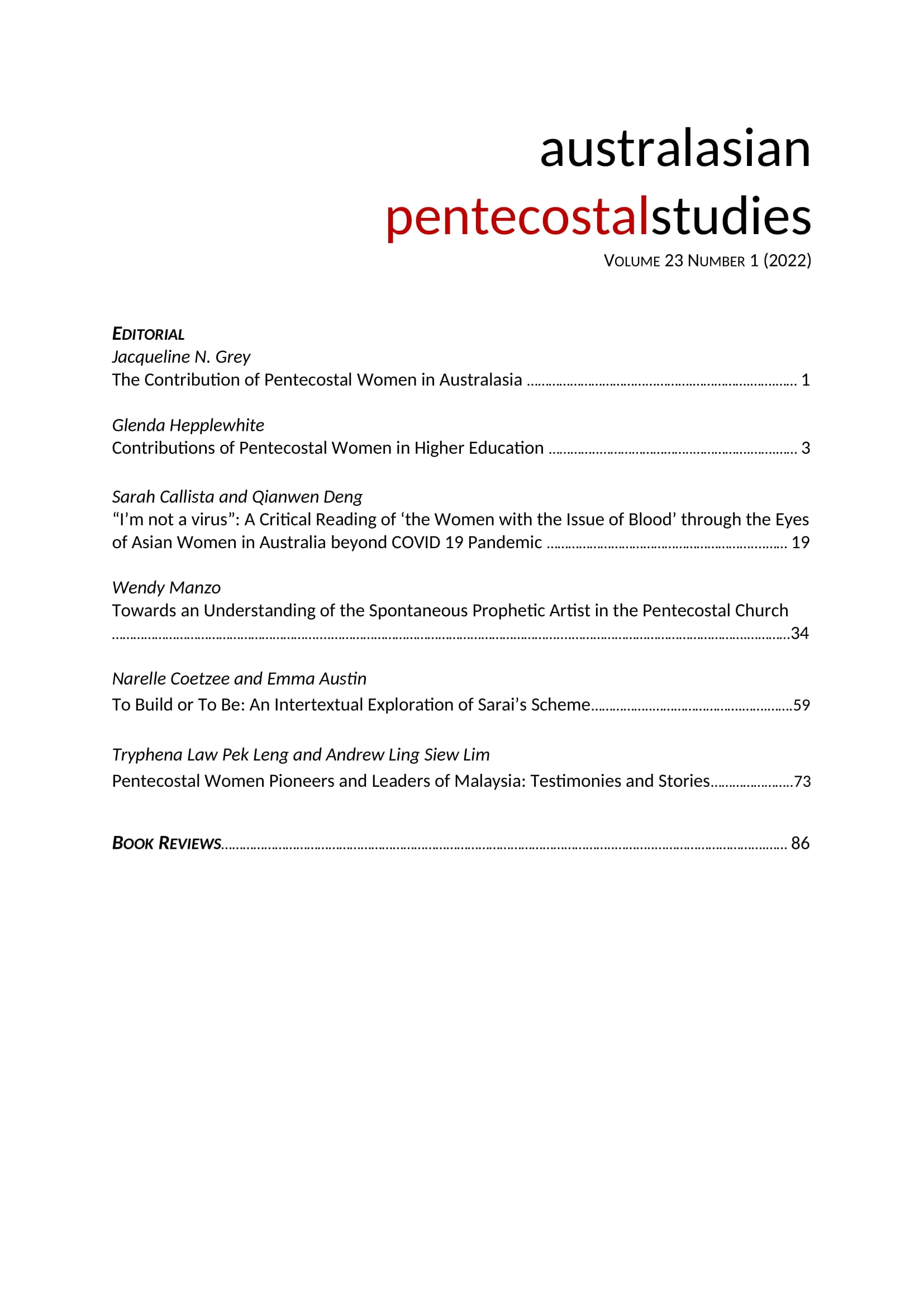Contributions of Pentecostal Women in Higher Education
Abstract
Over the past two decades, there has been a notable increase in the number of female students enrolling in Pentecostal Bible colleges globally. Factors which have contributed to this growth included the increased participation of women in higher education, particularly since the 1970s; the expansion and institutionalisation of Pentecostalism; and congregation members who sought more formal education and training. From humble beginnings as ministry training centres to regulated government institutions the college’s Pentecostal distinctives, appeal to many female students. Most Pentecostal denominational colleges chose to remain within church networks perpetuating the Pentecostal spirit, ethos and practice. Thus, preparing students, not only vocationally but also providing a holistic and transformational experience, through the power of the Spirit. Simultaneously, colleges provide opportunities for the next generation of female academics to become role models for female students. While many scholars have researched the experience of women in theological education broadly and others have explored key female leaders in the Australian Pentecostal movement, little work has focused on the reflections and experiences of female Pentecostal theological students and faculty in Australia. Utilising qualitative data and interviews with students, faculty and alumni of Alphacrucis College, its affiliates and comparable colleges this paper will briefly explore the contribution of Pentecostal women to Australian Higher Education.
Downloads
Published
How to Cite
Issue
Section
License
Authors who publish with this journal agree to the following terms:
- Authors retain copyright and grant the journal right of first publication with the work simultaneously licensed under a Creative Commons Attribution License that allows others to share the work with an acknowledgement of the work's authorship and initial publication in this journal
- Authors are able to enter into separate, additional contractual arrangements for the non-exclusive distribution of the journal's published version of the work (e.g., post it to an institutional repository or publish it in a book), with an acknowledgement of its initial publication in this journal.
- Authors are permitted and encouraged to post their work online (e.g., in institutional repositories or on their website) prior to and during the submission process, as it can lead to productive exchanges, as well as earlier and greater citation of published work (See The Effect of Open Access).


